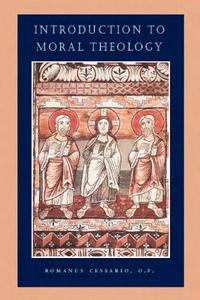
Free Download Introduction to Moral Theology By Romanus Cessario
2013 | 297 Pages | ISBN: 0813221315 | PDF | 2 MB
Originally published in 2001, Introduction to Moral Theology responded to the need for a new introduction to the basic and central elements of Catholic moral theology written in the light of Veritatis splendor. Since then, it has become a standard text for students and a reputable resource on such topics as moral theology and the good of the human person created in God's image; natural law; principles of human action; determination of the moral good through objects, ends, and circumstances; and the virtues, gifts of the Holy Spirit, and the Beatitudes.ABOUT THE SERIES:The Catholic Moral Thought series is designed to provide students with a comprehensive presentation of both the principles of Christian conduct and the specific teachings and precepts for fulfilling the requirements of the Christian life. Soundly based in the teaching of the Church, the volumes set out in depth, in a manner and style suitable for scholars, students, and general readers, the basic principles of Catholic moral thought and the application of those principles within areas of ethical concern that are of paramount importance today. In its initial phase, the series includes an introductory volume and volumes on sexual ethics, bioethics, and social ethics.ABOUT THE AUTHOR:Romanus Cessario, OP, is professor of systematic theology at St. John's Seminary in Brighton, Massachusetts. He has authored, coauthored, or edited several books, including The Moral Virtues and Theological Ethics, A Short History of Thomism, and Christian Faith and the Theological Life.PRAISE FOR THE ORIGINAL EDITION:"Introduction to Moral Theology is an auspicious, solid beginning for an important new series. More than other disciplines, moral theology needs to be thought through again and again - in the teeth of changing habits, symbols, and mores. Solid, not trendy, guidelines are needed."―Michael Novak, American Enterprise Institute"A learned and traditional Catholic account of Aquinas's vision of the moral life. . . ."―Choice"Cessario does a splendid job of introducing the series. . . . Essential reading for advanced undergraduate and graduate students of theology."―First Things"[A] splendid book on moral theology. . . . This book depicts in a grand style and well-argued fashion what shape reflection on moral theology must take when one embraces moral realism. Cessario does not reduce the moral life to will and obligation, but embraces the totality of the human person made in the imago Dei who seeks beatitude as part of a created world. . . . Advanced undergraduates, seminarians, and graduate students will benefit greatly from the fact that Cessario always notifies the reader of areas of significant disagreement and nonetheless provides a reasoned argument for navigating these areas in favor of moral realism. The book includes thorough footnotes and an extensive bibliography that provide an excellent starting point for students and scholars alike to deepen their acquaintance with the voluminous secondary literature on St. Thomas Aquinas and moral theology."―Nova et Vetera"Cessario has established himself as one of the leading scholars in the field of Roman Catholic moral theology, and those expecting to find a probative discussion of the essential features of the Thomisitic articulation of that tradition will not be disappointed. It is a masterful presentation. . . . The work is the product of a master theologian, a loyal servant of the church, and the efforts required to keep pace with his insights are well worth it. There are no viable competitors on the horizon of moral theology. Teachers more familiar with the features of that tradition can easily rely on Cessario's work to spawn within the classroom a series of very useful reflections. Newcomers will profit from the sweeping and vitalAbout the AuthorRomanus Cessario, OP, is professor of systematic theology at St. John's Seminary in Brighton, Massachusetts. He has authored, coauthored, or edited several books, including The Moral Virtues and Theological Ethics, A Short History of Thomism, and Christian Faith and the Theological Life.
Introduction to Moral Theology Torrent Download , Introduction to Moral Theology Watch Free Link , Introduction to Moral Theology Read Free Online , Introduction to Moral Theology Download Online
